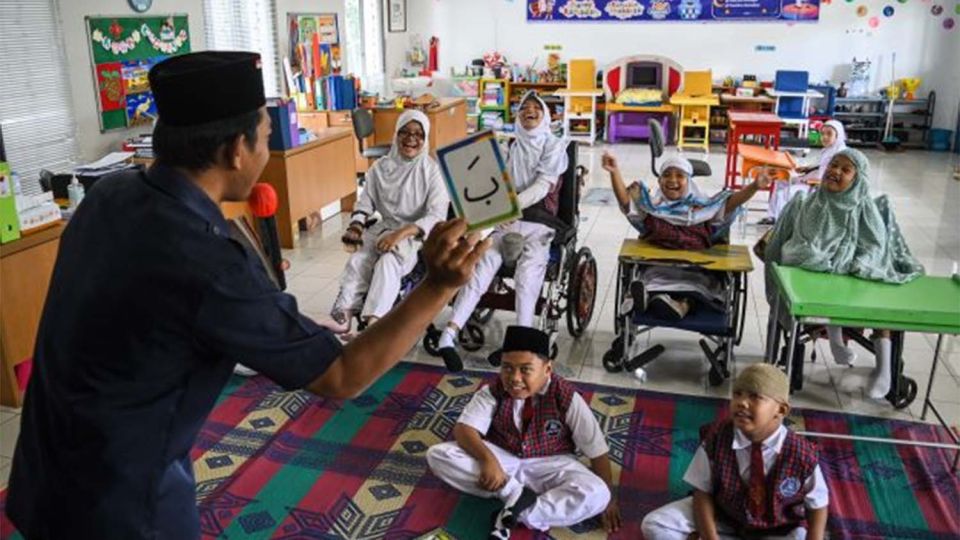April 11, 2024
CANBERRA – Idul Fitri, which Muslims across the world will celebrate this week, offers an opportune moment to reflect on the transformative power of niat (intention) in education, drawing inspiration from the essence of this festive time.
The holiday symbolizes reflection, renewal, forgiveness and the gathering of the community.
These themes resonate deeply with the transformative aspects of teaching and learning.
The practice of niat in Islamic teaching signifies a mindful, purposeful act, an ethos that is particularly pertinent to education.
This concept goes beyond the mere covering of a syllabus; it embodies teaching with a deliberate purpose, akin to the meticulous rituals performed during Ramadan.
For instance, the act of performing wudu (ablution) is not just a physical cleansing but a symbolic purification of one’s intentions – a practice paralleled in teaching when we cleanse our curriculum of rote learning, infusing it with critical thinking and problem-solving skills.
Idul Fitri is a time for redemption and starting anew, themes that can powerfully inform educational practices. Just as Muslims ask for forgiveness and embrace a fresh start during Idul Fitri, educators and students can use this time to revisit their niat and renew their educational journeys.
As educators, it’s essential to transition beyond the mechanical aspects of teaching, akin to our experience of ablution or prayer.
Is our teaching driven by intention, or has it become a mere routine?
This reflection is critical, especially in teacher education, where we need to impart not just knowledge but the “why” behind it.
For instance, embedding the intention of fostering critical thinking in mathematics teaches students not just the “how” but also the “why” of the subject.
In my recent lesson plan for pre-service teachers at the Faculty of Education, University of Canberra, I sought to reflect this spirit of renewal and embody the essence of niat through differentiated instruction and interactive activities.
We engaged in activities that transformed abstract mathematical concepts into tangible experiences, mirroring the transformative journey from the fasting of Ramadan to the celebration of Idul Fitri.
This included using practical, real-life examples to illustrate mathematical principles, and fostering a connection between the curriculum and the lived experiences of students.
For instance, the lesson began by inviting pre-service teachers to share their personal experiences with fractions, fostering a reflective and personalized learning environment.
Following this, a series of hands-on, outdoor activities were carefully designed to transform abstract mathematical concepts into tangible experiences.
These included using ropes to illustrate and estimate fractions and incorporating practical applications, such as employing cooking tools for a cooking-based fractions exercise.
These activities were not just exercises in mathematical theory but were carefully developed to cater to diverse learning styles, ensuring a deeper and more contextual understanding.
This innovative teaching method transcends traditional lesson planning, making education a deeply meaningful journey and uniquely engaging each learner.
These scenarios illustrate how embracing Idul Fitri’s spirit of renewal can universally enhance educational practices.
Such practices, deeply rooted in Islamic teachings, offer a valuable framework adaptable across diverse educational settings, promising a more holistic and impactful learning journey.
Idul Fitri also fosters communal harmony and understanding, elements central to education.
When educators align their teachings intending to foster empathy and social responsibility, they craft experiences that transcend academia, contributing to students’ holistic development.
Consider a project where students devise real-life community solutions, not only teaching technical skills but also instilling communal responsibility and innovation.
Such approaches enable students to understand the purpose of complex concepts, thereby enhancing their intrinsic motivation and engagement.
Lessons are perceived not merely as academic requisites, but as relevant tools for real-world challenges.
This paradigm shift, inspired by the principles highlighted during Ramadan, has potential in various educational contexts, irrespective of cultural or religious backgrounds.
Moreover, as Idul Fitri is a time for giving and charity, this principle can be integrated into education by encouraging students to engage in community service or social projects as part of their curriculum.
This instills a sense of generosity and social consciousness, aligning with the niat of creating well-rounded individuals who contribute positively to society.
While integrating a spiritually-rooted concept like intention in education might seem controversial, the focus here is not on religious doctrine.
Instead, it’s about nurturing a sense of purpose and engagement in educational activities.
It’s a universal principle, that transcends religious contexts.
As we celebrate Idul Fitri, educators, administrators and policymakers should embrace the holiday’s values of reflection, renewal, forgiveness and communal harmony in our educational practices.
By doing so, we not only adhere to the principles of niat but also enrich our teaching methodologies and the overall learning experience of our students.
This approach, while inspired by Islamic teachings, transcends religious contexts and offers a universal framework for enhancing education in diverse settings.
Let Idul Fitri’s spirit guide us in nurturing a more purposeful, engaging and holistic educational journey.


